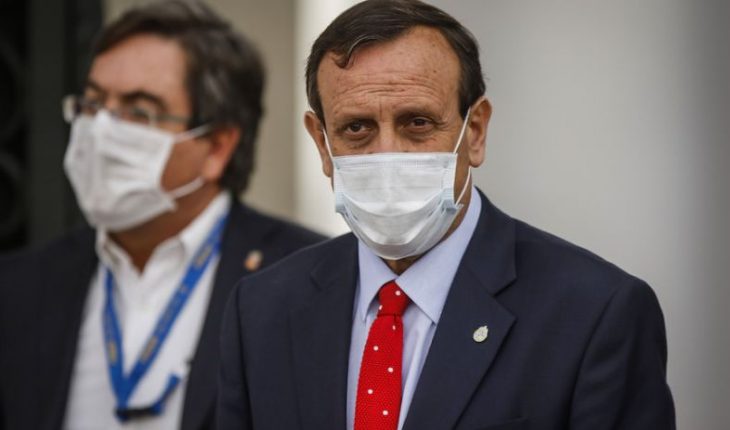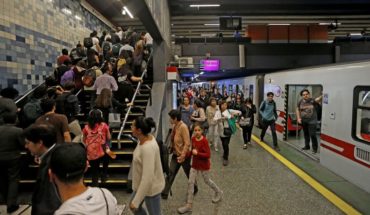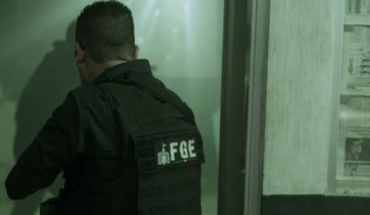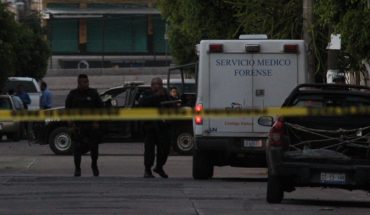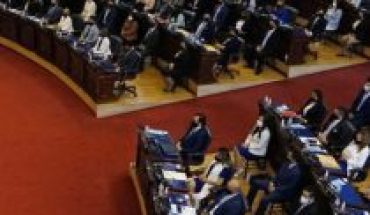“We know it’s an extremely complex year for everyone, including the students who are taking the test this year. We hoped that there would be a decrease in the number of enrollees, it is not a lack of interest, but that there are personal, family realities that are very harsh and that has probably caused some students to postpone the idea of continuing studies, they have to work, support their families. There are diverse realities,” said this morning the rector of the Pontifical Catholic University, Ignacio Sánchez, on the descent by 11% of those enrolled to give the University Transition Test in January 2021.” The important thing is to continue to give all the information, the support and hopefully that the people who have decided to postpone this year (the test), can resume it another time. We saw it last year: after the social crisis there were fewer enrollees, first because of the boycott to the test, but then (they dropped) those enrolled in the universities because there were people who had to work to support their families,” he added on Radio Universe. “We have also seen in universities a no smaller number of students who have postponed their studies. The whole environment indicates that there is an economic crisis, a family employment crisis that means that many family members have to take these paths, we have to continue to report this transition test in the best way,” he said. Asked by the digital divide left by video classes among students of higher and lower resources in 4th Middle, he replied that “there is no doubt that what it raises is a central issue, we have said over and over again, that one of the great problems of (the pandemic) is that it deepens gaps. The numbers are solid, a large percentage of private schools have been able to follow and a much lower percentage in high schools and public establishments.” Sanchez pointed to the need to focus efforts on increasing digitization and discussing the issue of “how we come back, how we meet in the classroom with all the security measures”. “In this the Mineduc, the College of Teachers, different actors are talking and I urge that a working table be established as soon as possible to comment on these issues.” There are some things to be clarified,” he said. “The contents of the Transition Test are up to 3rd Medium in 95% of the themes, there are very specific topics of 4th Middle. Therefore, what you could do to encourage those who give the test is to review the subjects they have had in previous years. In these college entrance tests, the large percentage of content they have is in the first 3 years of the average and not in the 4th Middle, therefore, you have to be optimistic to review content and not fall into depression or the uncertainty of what has happened this year. If students have prepared the previous years it is time for these remaining months to review those contents.” In the face of doubt when classes should be resumed, the rector replied: “It all depends on the situation of each place. You see that there are communes in the country, there are not many, but there are communes where this has been done. I feel that what needs to be done is to resume the discussion because as long as the vaccine doesn’t exist, how we end this year is how we’re going to start next year. So it’s not about putting this off for March because if we don’t do real action at this end of the semester, we’ll come to March too with the uncertainties.” That is why I urge this de-education dialogue table because on the one hand we all know surveys in which a large majority of families, teachers, are very afraid and that is understandable, but we will also be able to put criteria of maximum capacity, of protective measures, of restricted schedules, of shifts to go to classes. We have to be creative enough to restart slowly, and with all the visibility that it happens in the pandemic at the national level, so as not to immobilize ourselves,” he argued.” But we discuss the topic, if the topic appears as taboo where it cannot be analyzed together, we are not doing any of the students a favor. The gaps deepen the differences and that’s hard to put off. Of course, health security is above the other aspects, but I think we can balance health security with an analysis of how we return partially, gradually and very flexibly, correcting mistakes as we see the pandemic situation in a commune or country changing.” Sanchez called to think of this return “before December.” “One thing is classes and other are school activities, we’re not going to think about putting 30 students in a classroom, but I canwe – in small groups – bring them to the establishments if the conditions allow them to do elective activities, to do practical activities, group work, that is why I say I think that before December we have to have some plan in place that we are seeing how it works.” He then mentioned what happens in college: “We know the difference between college and a primary school, but what we want is that in the next three weeks students can go, in small groups, to do practical activities, not classroom lessons, but internships. That’s the way to resume activities little by little,” he concluded. A big mistake”I think it’s a big mistake,” Sanchez – a member of the Covid Social Table – responded when asked his opinion on the constitutional indictment against former Minister Jaime Mañalich. “Minister Mañalich, with all the successes and successes that his administration and management may have had.” Of course he doesn’t deserve a constitutional charge at all. What must be done in parliament today, and all of us who work to develop the country, is to devote ourselves to that, to see how we move forward. The issue we talked about earlier is crucial, there are many issues in parliament that should have the attention of parliamentarians. It seems to me that this series of constitutional accusations, particularly to Mañalich, have no reason to move forward because I say it again: he was right and probably uncertain, but none of them deserve a constitutional accusation, it is a complete mistake.”
translated from Spanish: UC Rector asks dialog table to define return to classes and not treat the subject as a “taboo”
September 16, 2020 |
